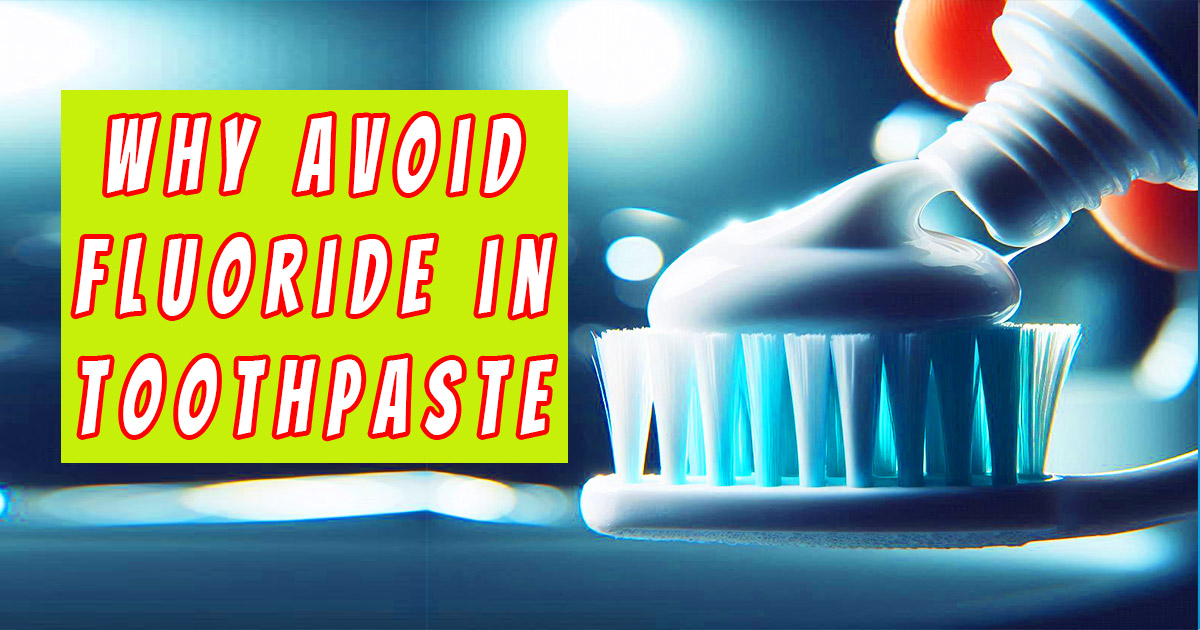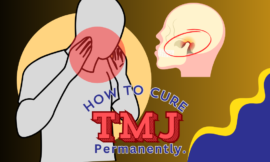Fluoride has been widely promoted as an essential ingredient in toothpaste to prevent cavities and improve oral health. For decades, it has been the go-to chemical for dental care. However, in recent years, concerns have been raised about its safety, long-term effects, and whether it should be a part of your daily oral hygiene routine. This brings us to the important question: why avoid fluoride in toothpaste?
In this blog, we’ll explore why some people choose to avoid fluoride in toothpaste, examining the potential risks and controversies surrounding its use. We’ll dive into the science, health concerns, and alternatives, so you can make an informed decision about what’s best for your oral health.
What Is Fluoride and Why Is It in Toothpaste?
Before we explore the reasons to avoid fluoride, let’s first understand what it is. Fluoride is a naturally occurring mineral that’s often added to dental products like toothpaste and mouthwash, as well as public water supplies, to help reduce the incidence of tooth decay.
Fluoride works by:
- Strengthening tooth enamel, making it more resistant to acid produced by bacteria in your mouth.
- Re-mineralizing weakened enamel, preventing cavities from forming.
Because of these benefits, fluoride has been widely adopted as a preventive measure against dental decay. However, despite its purported benefits, there are several reasons why people are reconsidering their use of fluoride in toothpaste.
1. Potential for Fluoride Toxicity
One of the main concerns surrounding fluoride is its potential toxicity. While fluoride in small amounts is generally considered safe, consuming it in excessive quantities can lead to a condition known as fluorosis. Fluorosis can cause white spots, discoloration, or even pitting on the teeth, especially in children whose teeth are still developing.
But the risk doesn’t stop there. Ingesting too much fluoride can result in more serious health problems, such as:
- Bone issues: Excessive fluoride intake has been linked to weakened bones, which could lead to conditions like osteoporosis.
- Kidney problems: Those with compromised kidney function may struggle to filter fluoride, increasing their risk of toxicity.
- Neurological damage: Some studies suggest that high fluoride levels might negatively affect brain development in children.
For these reasons, many people are opting for fluoride-free toothpaste to avoid the risks of overexposure, especially for their children.
2. Increased Risk of Dental Fluorosis in Children
Children are particularly vulnerable to the effects of fluoride, and one of the most common problems associated with overexposure is dental fluorosis. This condition occurs when children consume too much fluoride during the years when their teeth are developing.
Since kids often swallow toothpaste, they’re more likely to consume excessive fluoride, leading to permanent discoloration of their teeth. This has raised concerns among parents, prompting many to switch to fluoride-free toothpaste for their children.
If you’re worried about the risk of fluorosis, especially for young kids, opting for natural, fluoride-free alternatives can help mitigate this risk.
3. Controversies Around Fluoride in Drinking Water
Another reason to avoid fluoride in toothpaste is the controversy surrounding water fluoridation. In many countries, fluoride is added to the public water supply to prevent dental decay. However, this practice has been met with increasing opposition, as people question the ethics and safety of mass medication through drinking water.
While proponents argue that fluoridated water reduces cavities in communities, critics point out that:
- Fluoride exposure is cumulative: We are exposed to fluoride from various sources, including water, toothpaste, processed foods, and even tea. The concern is that the combined exposure may exceed safe levels.
- Health concerns: Some researchers suggest that chronic exposure to fluoride through water may contribute to a range of health problems, from thyroid dysfunction to potential neurotoxicity.
For those already consuming fluoridated water, using fluoride-free toothpaste can help reduce their overall fluoride intake.
4. Possible Link Between Fluoride and Thyroid Problems
There’s increasing evidence that suggests fluoride may affect thyroid function, especially in individuals who are already prone to thyroid disorders. Fluoride has been found to accumulate in the thyroid gland and may interfere with its function by reducing iodine absorption—a mineral crucial for thyroid health.
The thyroid gland regulates many vital functions in the body, including metabolism, energy levels, and hormone production. When the thyroid isn’t functioning properly, it can lead to conditions like hypothyroidism, which can cause:
- Fatigue
- Weight gain
- Depression
- Hair loss
Although the research is still ongoing, those with a family history of thyroid problems may prefer to avoid fluoride in toothpaste to prevent any potential interference with their thyroid function.
5. Fluoride and Brain Health: Neurotoxicity Concerns
Several studies have suggested a link between fluoride exposure and potential neurotoxicity, especially in children. Research conducted by Harvard University and other institutions has raised concerns that high levels of fluoride could affect brain development, potentially lowering IQ in children.
While the levels of fluoride in toothpaste may not directly cause these issues, the cumulative exposure through drinking water, toothpaste, and food can be a cause for concern. Given the potential risks to developing brains, many parents and health-conscious individuals are opting for fluoride-free alternatives as a safer choice.
6. Allergic Reactions to Fluoride
Another reason why some people choose to avoid fluoride in toothpaste is due to allergic reactions. Although rare, some individuals are sensitive to fluoride and may experience symptoms like:
- Mouth ulcers
- Skin rashes
- Gastrointestinal issues
If you’ve experienced any of these symptoms and suspect fluoride could be the cause, switching to a fluoride-free toothpaste may alleviate these reactions. Look for toothpaste with natural ingredients like xylitol, which offers similar cavity-fighting properties without the risk of allergic reactions.
7. Environmental Concerns About Fluoride Use
The use of fluoride has also sparked concerns from an environmental standpoint. Large amounts of fluoride used in water fluoridation come from industrial waste byproducts, raising ethical and environmental questions about how these chemicals are sourced and disposed of.
Additionally, fluoride that washes down the drain when you brush your teeth eventually makes its way into the water system, contributing to environmental pollution. Some studies suggest that fluoride can accumulate in plants and animals, potentially affecting ecosystems and wildlife.
For individuals concerned about their environmental impact, switching to fluoride-free toothpaste made with natural ingredients is a way to reduce fluoride pollution.
8. Ethical Concerns Over Mass Fluoridation
Another argument against fluoride use in toothpaste relates to ethical concerns over mass fluoridation. Fluoride is often added to public water supplies without consent from the population, raising the question of whether it is ethical to medicate people without their explicit approval.
Many people prefer to have control over the chemicals and substances they consume daily. By choosing fluoride-free toothpaste, they can reduce their exposure to a substance that they haven’t consciously chosen to ingest.
9. Availability of Safer Alternatives to Fluoride
Thanks to advances in dental care, safer, fluoride-free alternatives have become available, making it easier to avoid fluoride without compromising oral health. Some of the most effective alternatives include:
- Xylitol: A natural sweetener that helps prevent cavities by neutralizing acid-producing bacteria in the mouth.
- Hydroxyapatite: A naturally occurring mineral that makes up 97% of tooth enamel and has been shown to re-mineralize and strengthen teeth, much like fluoride.
- Calcium phosphate: Another mineral that aids in enamel repair and helps prevent tooth decay.
These ingredients are now commonly found in many natural toothpaste brands, providing an effective and safe alternative to fluoride.
10. Fluoride Is Not Always Necessary for Good Oral Health
Finally, one of the biggest reasons people avoid fluoride in toothpaste is because it’s not necessarily essential for maintaining good oral health. Proper dental hygiene practices, such as regular brushing, flossing, and routine dental checkups, are often enough to prevent cavities and maintain healthy teeth without the need for fluoride.
By focusing on a balanced diet, reducing sugar intake, and using natural toothpaste, many individuals are successfully maintaining their oral health without fluoride.
Why Avoid Fluoride in Toothpaste During Recovery from Dental Surgery?
If you’ve recently undergone a tooth extraction, such as the procedure described in this guide on first-night recovery after tooth extraction, you might want to consider fluoride-free toothpaste during the recovery period.
After an extraction, your dentist will recommend gentle care of your oral tissues to promote healing. Some experts suggest that fluoride-free toothpaste may reduce irritation in sensitive gums, helping to avoid additional discomfort during recovery. Always consult your dentist for specific recommendations tailored to your situation.
FAQs About Avoiding Fluoride in Toothpaste
1. Why should I avoid fluoride in toothpaste?
Many choose to avoid fluoride due to concerns about its potential toxicity, risks of dental fluorosis, and possible links to other health issues like thyroid dysfunction and neurotoxicity.
2. Is fluoride-free toothpaste effective at preventing cavities?
Yes, fluoride-free toothpaste can still be effective at preventing cavities. Ingredients like xylitol and hydroxyapatite are proven alternatives that help maintain healthy teeth.
3. Can fluoride cause an allergic reaction?
Though rare, some people experience allergic reactions to fluoride, including mouth ulcers, skin rashes, and gastrointestinal issues.
4. Is fluoride harmful to children?
Children are more susceptible to overexposure to fluoride, which can lead to dental fluorosis. Many parents choose fluoride-free toothpaste to avoid this risk.
5. How does fluoride affect the thyroid?
Fluoride may interfere with thyroid function by reducing iodine absorption, potentially contributing to thyroid disorders like hypothyroidism.
6. What are the symptoms of fluoride toxicity?
Fluoride toxicity can cause symptoms like nausea, vomiting, diarrhea, and in severe cases, bone and neurological problems.
7. Are there safer alternatives to fluoride?
Yes, ingredients like xylitol, hydroxyapatite, and calcium phosphate offer safe and effective alternatives to fluoride





Pingback: Cymbalta Ruined My Life: Understanding the Impact, Alternatives, and Coping Strategies - Magzineco